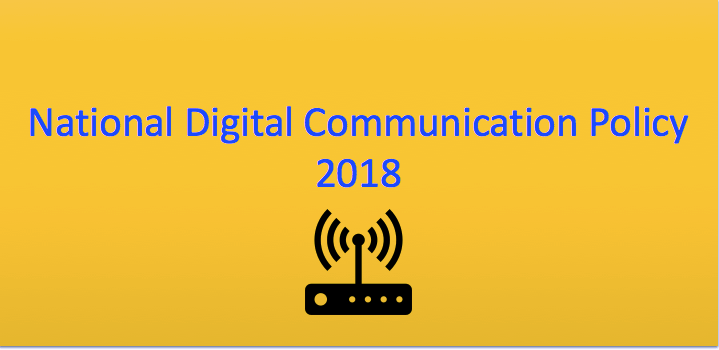iSPIRT has been actively engaged in pursuing the favourable policy for the Cloud Telephony sector in Telecom Industry, an amalgamation of the various IT and Communications technologies.
National Digital Communication Policy has been announced recently and it is encouraging to see the announcements in the policy on some common issues to do with Startup ecosystem and digital communication aspects of the Cloud Telephony Players.
We are expecting the Department of Telecom (DOT) to further work on implementation and framing of rules and regulation in light of policy in near future. Despite many positive directional changes, there is a need to develop a regulatory framework for the Cloud Telephony players. Cloud Telephony players are adding value to communication and hence to the economy in several innovative ways. In addition, they also add a good revenue stream to licenses Telecom Service Providers (TSPs).
This PolicyHacks session is devoted to the critical analysis of the NDCP for this sub-sectoral player. Some of the entrepreneurs involved in the discussion are Gurumurthy Konduri of Ozonetel, Ujwal Makhija of PhoneOn, Gaurav Agrawal of Exotel and Gaurav Sawhney of Knowlarity.
A recording of this discussion is given below. Please feel free to click and watch. (About 20 seconds lost in the opening frame, apologises for the error)
The main point covered in the discussion is summed up below as are the some of our recommendations and good work is done (while the Policy was in the draft stage and during various consultation processes), which have been reflected in the policy under respective sections as under:
Page 7
1.1.(f) – Encourage and facilitate sharing of active infrastructure by enhancing the scope of Infrastructure Providers (IP) and promoting and incentivising the deployment of common sharable, passive as well as active, infrastructure
1.1.(g).iv. – Allowing benefits of convergence in areas such as IP-PSTN switching.
Both of these are encouraging moves however it is to be seen how further rules and framework make easy for Small and Startup companies to use them without licensed TSPs creating a barrier for them.
Page 8
1.1.(j) – By encouraging innovative approaches to infrastructure creation and access including through resale and Virtual Network Operators (VNO)
This is a very encouraging announcement for the Cloud Telephony startups.
Page 14
2.1. (c ) iv. – Improving the Terms and Conditions for ‘Other Service Providers’, including definitions, compliance requirements and restrictions on inter-connectivity
2.1.(c ).viii. – Creating a regime for fixed number portability to facilitate one nation – one number including portability of toll-free number, Universal Access numbers and DID numbers
Again very encouraging but needs some boost up. Audiotex regime must go most speakers feel and all the players in Cloud telephony are treated as ASP. These provisions will help cloud telephony to deliver better value propositions in their offerings.
Page 15
2.2.(a) iv: – Encourage use of Open APIs for emerging technologies
2.2. (b) – Promoting innovation in the creation of Communication services and network infrastructure by Developing a policy framework for ‘Over The Top’ (OTT) services.
2.2.(f) ii. – Enabling a light touch regulation for the proliferation of cloud-based systems
2.2.(f).iii. – Facilitating Cloud Service Providers to establish captive fibre networks.
A welcome move to encourage Open APIs. However, licenses TSP should be given one standard that is governed by DOT to implement any APIs that let them monitor cloud telephony or ASPs on their network, instead of allowing them to create a regime of their own.
Generally, an OTT policy is recommended in reforming the sector. However, OTT framework should not be mixed with ASP or Cloud Telephony providers. It is better to keep a distinction between the two.
Page 17:
2.4.(a).ii: – Promoting participation of Start-ups and SMEs in government procurement
2.4.(b). – Reducing the entry barriers for start-ups by reducing the initial cost and compliance burden, especially for new and innovative segments and services.
Acceptance of these issues is very encouraging. The Government can be a very big user of the Cloud Telephony industry also. And we hope this will turn out to be a winning proposition for the Cloud Telephony industry in near future.
Conclusion
Whereas this policy announcement reflects a positive change, it is yet to be seen how DOT look at Cloud Telephony and provides it with a recognition as a sub-sector with easy and proper regulatory framework for same.
Note: The above article is co-authored by Gurumurthy Konduri of Ozonetel with Sudhir Singh of iSPIRT


